Image Source: http://quotha.net/node/1150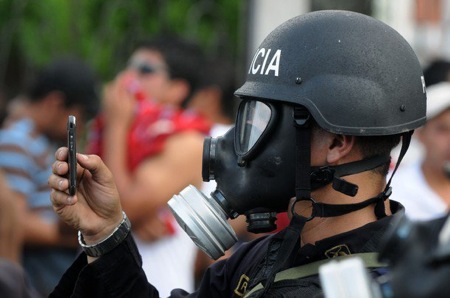

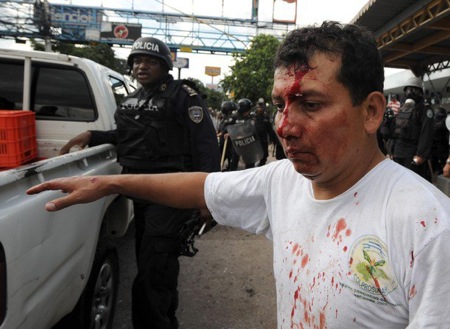
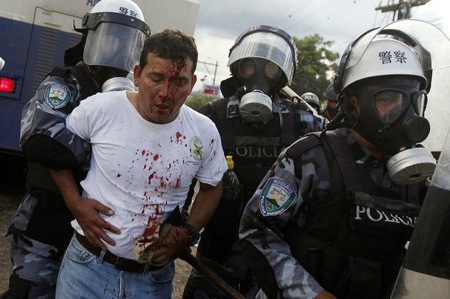
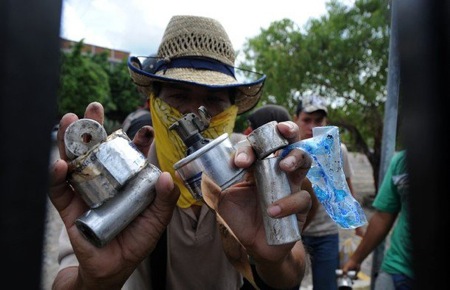
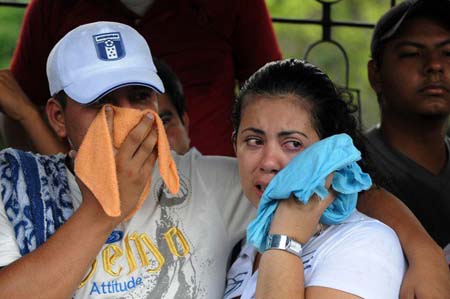
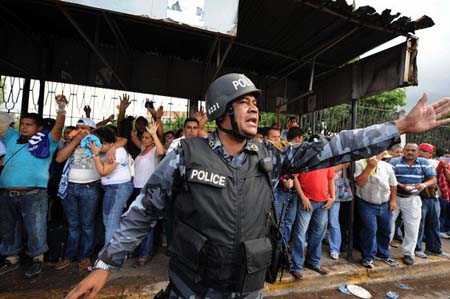
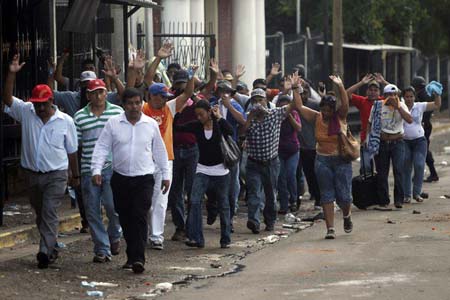
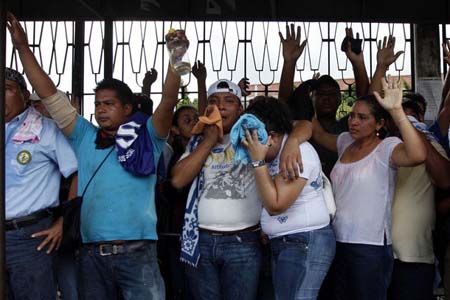
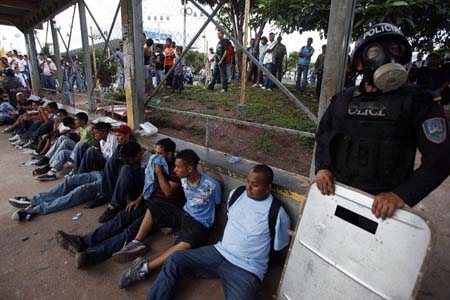
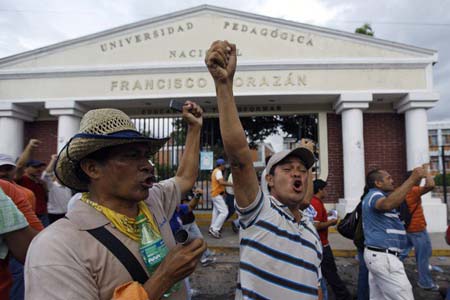
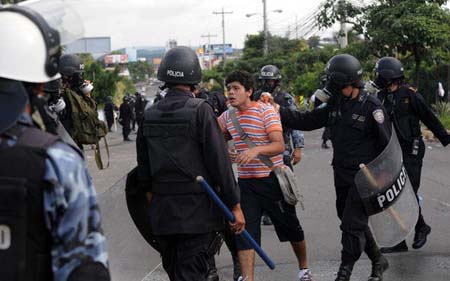
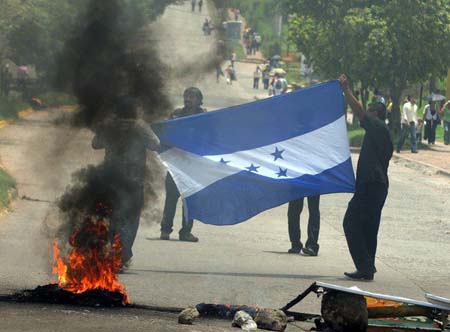
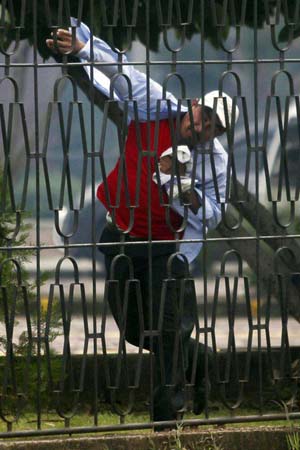
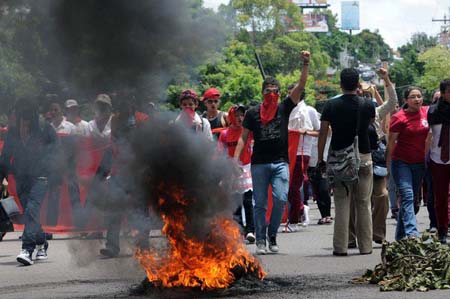
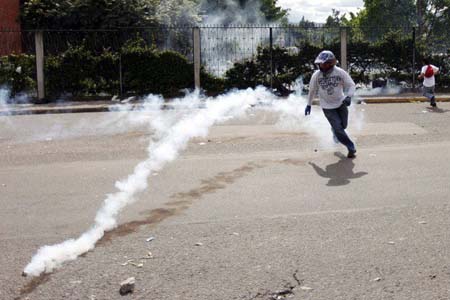
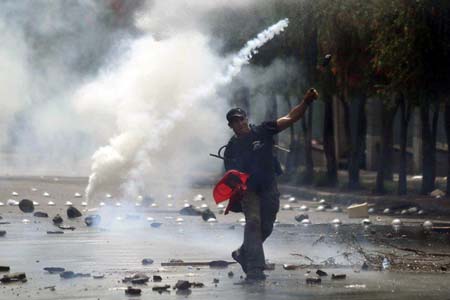
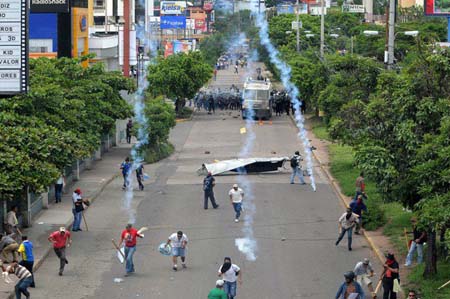
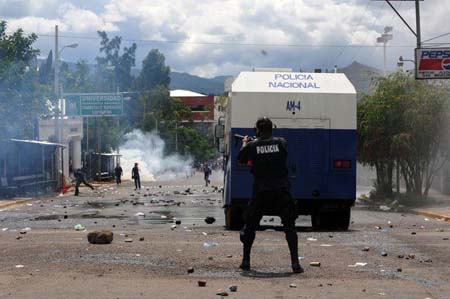
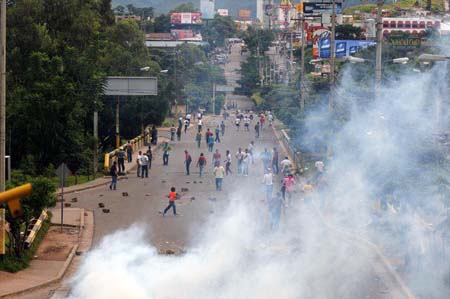
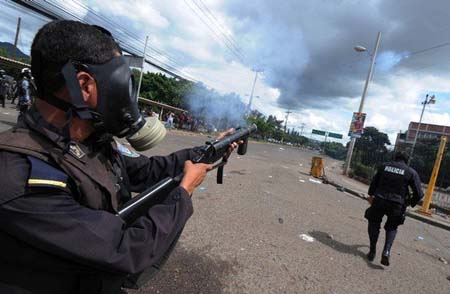
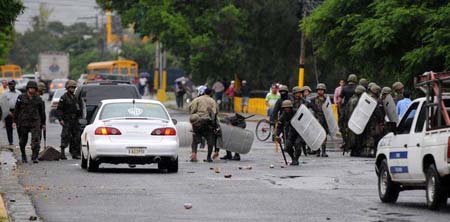
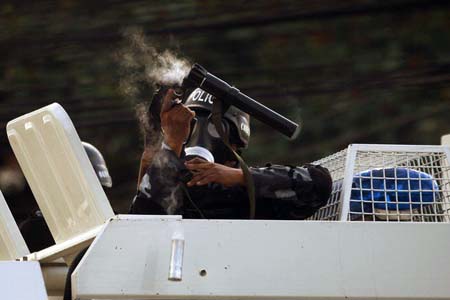
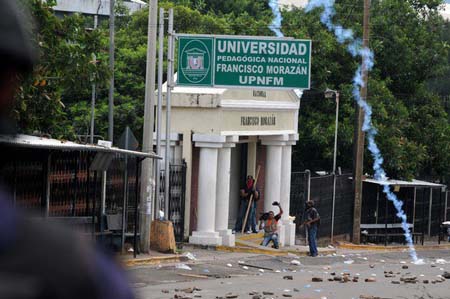
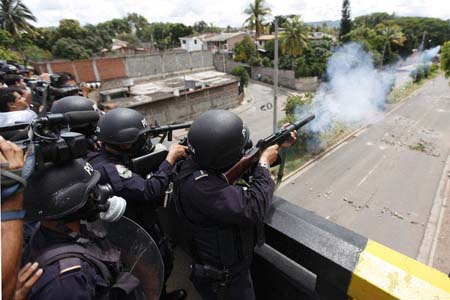
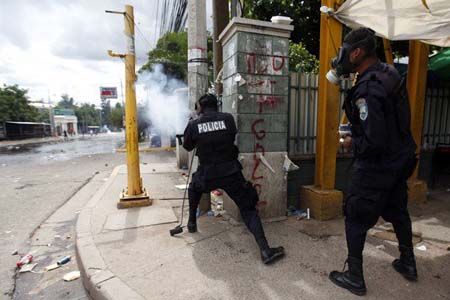
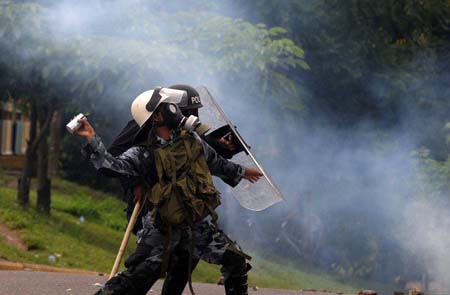
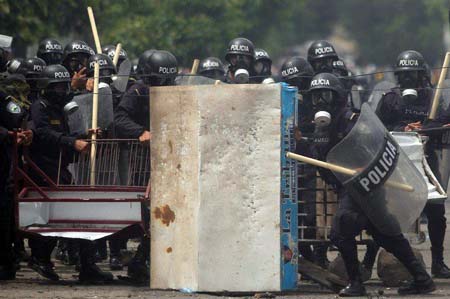
*Dozens of teachers have been arrested in the last couple of days
*Police have shot at the protestors with real bullets and have affected not only protestors, but the whole population living/circulating in the surroundings of the demonstration, including children who have been affected by tear gas
*Over 5 journalists from different media (several from TIEMPO, Radio Globo, and Cholusat Sur) have been beaten up by state security forces in the last three repressive actions against the teachers.
Over 100 tear gas grenades thrown today by the army inside the Universidad Pedagógica
Friday, August 27 2010 16:25
 The teachers suffered brutal repression today once more. This time, the military reached a point of throwing over 100 tear gas grenades inside the Universidad Pedagógica.
The teachers suffered brutal repression today once more. This time, the military reached a point of throwing over 100 tear gas grenades inside the Universidad Pedagógica. The gases spread several hundreds of meters towards the surroundings. Businesses like Mall Miraflores were closed compltely and the road that leads to Danli and Col Kennedy was closed.
Human Rights organizations confirmed the situation in situ and are still present in the zone.
There are many people suffering the effects of the gases, from diarrea to skin problems.
This is the second day in a row in which the military repress teachers who demand the money which was robbed from INPREMA by the de facto government to be returned.
Once again, there is evidence of very little will and interest in the government of Pepe Lobo to find solutions to the problems of the country, as disproportionate use of force is used by the state throughout its repressive bodies after the coup d'état.
---------------------------------------------------------------------
Update 5_00 p.m. Radio Globo and Globo TV labeled as brutal and genocide repression what happened inside the Universidad Pedagógica Nacional Francisco Morazán this afternoon, after police broke inside the facilities of the university and beat savagely teachers, pregnant women and children: On Globo TV, a 7 year old child was shown in state of shock shivering because of inhaling tear gas.
Journalist Carlos Paz of Radio Globo beaten savagely when he was inside the University reporting the events. The Universidad Pedagógica was declared a Nazi-styled concentration camp.
From the Social Security and Hospital Escuela (state hospitals) teachers complained that they will not become assisted.
Despite people surrendering, the University has been saturated with gases. From a Toyota Ford Runner vehicle, silver 2000, licence plate pbj9117, belonging to the National Congress of the Republic, teachers were shot. Hitmen, paramilitary at the service of the oligarchy were shooting against teachers.
Radio Globo also reported that its signal and Globo TV's was being cut in the national territory.


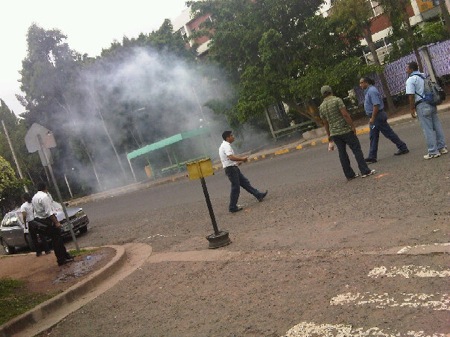
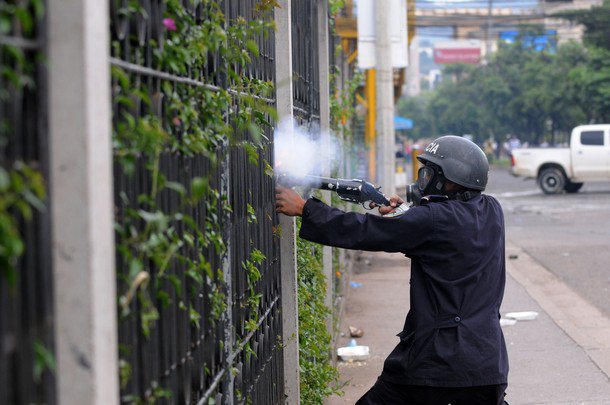
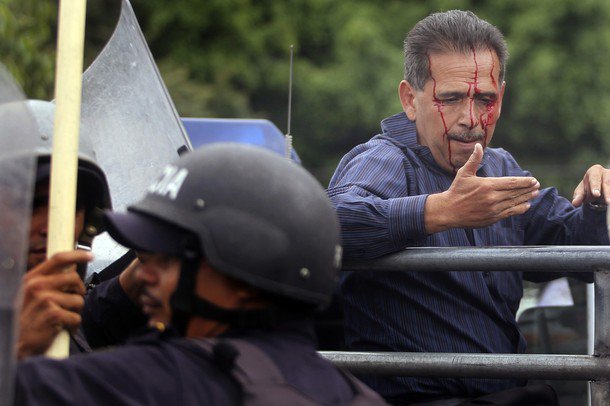
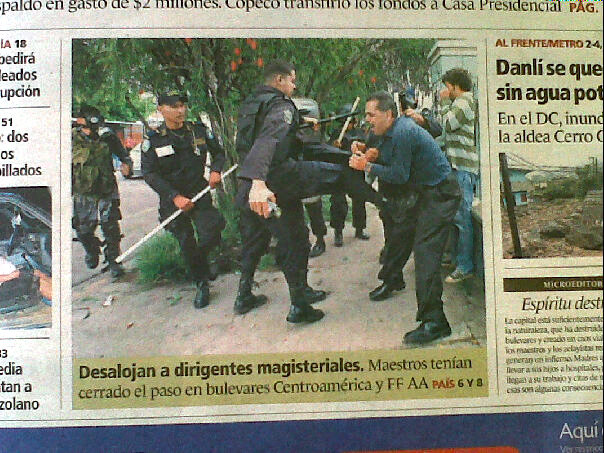
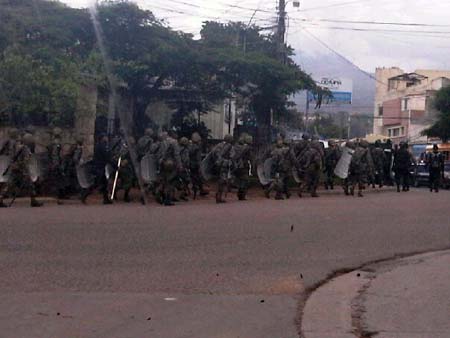
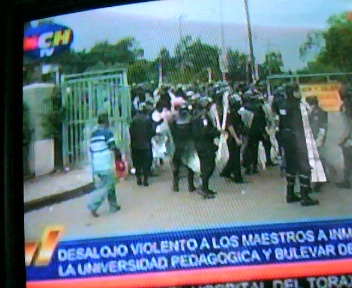
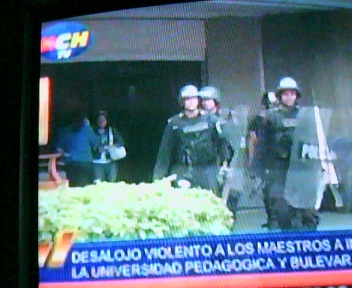
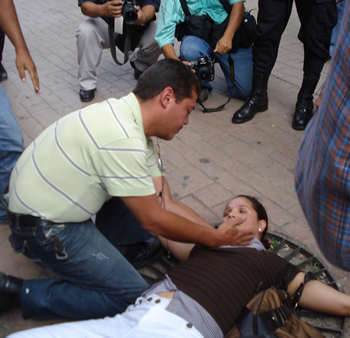
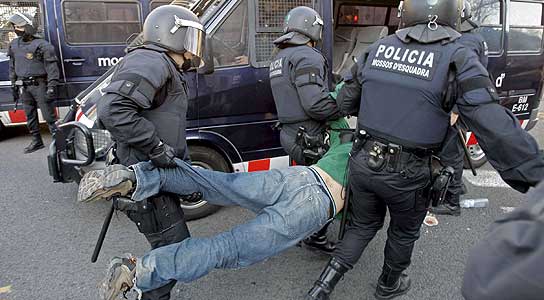
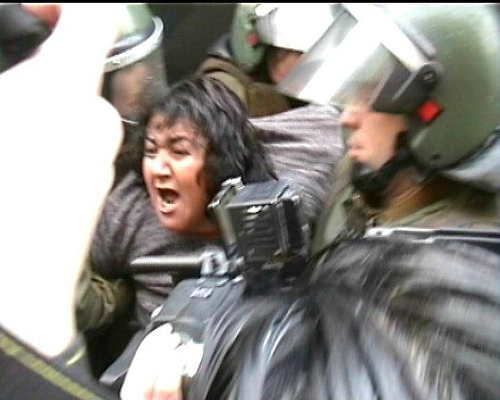
.jpg)




